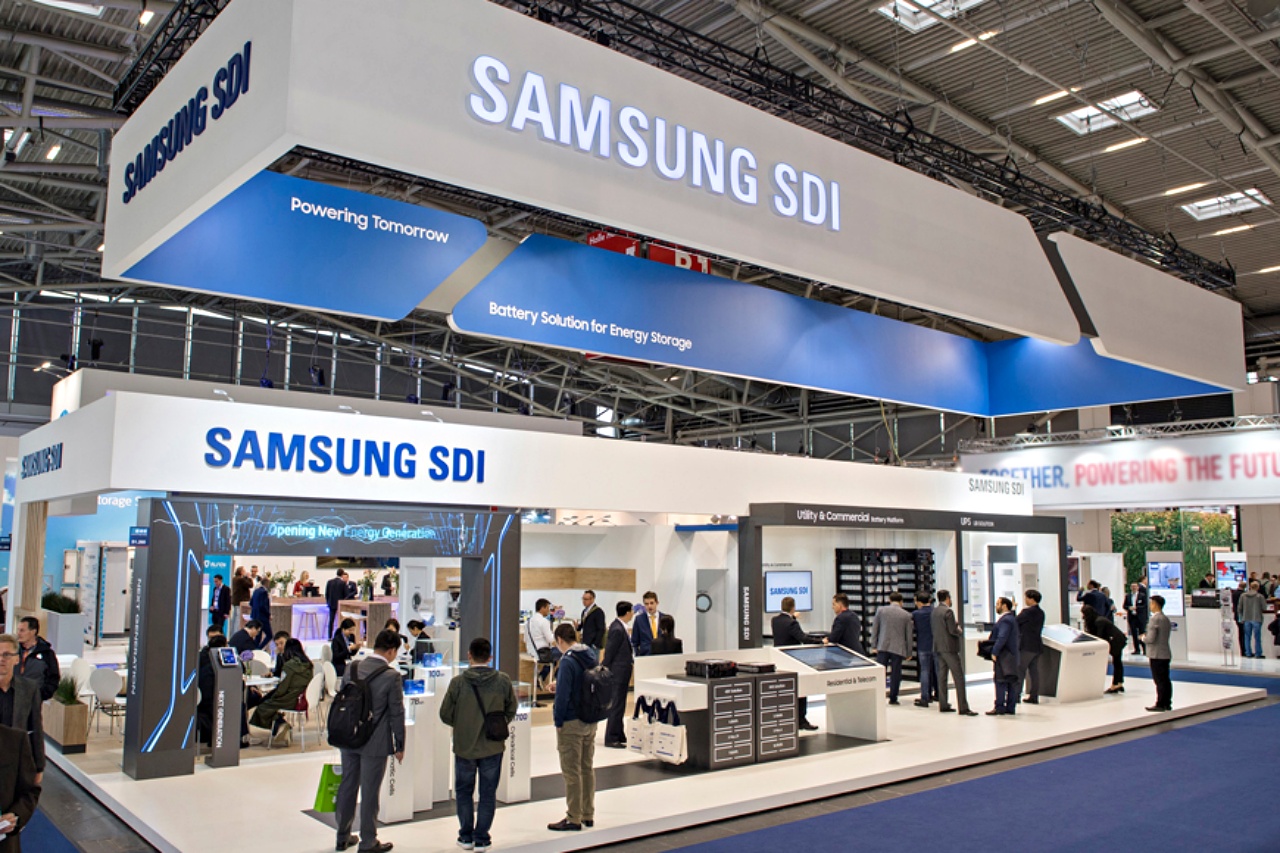POSCO Chemical Co. and Samsung SDI have agreed to join forces for the supply of cathode materials for the production of electric vehicle batteries. The companies signed a deal worth KRW40 trillion or about $33 billion on Monday, Jan. 30.
As per Yonhap News Agency, the share price of POSCO Chemical immediately surged after the news of cooperation with the Samsung Group’s battery and electronic materials unit. This is because the Korean battery material firm is in the lead as automakers look for stable parts supply for their own productions.
POSCO Chemical revealed that the contract it signed with Samsung SDI is its largest-ever long-term deal related to the supply of key battery components for making EV battery cells. It was agreed the company would provide the latter with high-nickel cathodes, which are made up of lithium, nickel, cobalt, and aluminum.
The supply will continue for a period of 10 years, and shipments are set to begin this year. The cathodes are crucial in EV battery production because it is the component that determines the power of the battery cells. This material is said to account for over 40% of the total battery production cost.
This new deal comes after POSCO Chemical secured a KRW13.7 trillion cathode supply deal with Ultium Cells last year. The latter is a U.S.-based firm that was formed via a joint venture between General Motors and LG Energy Solution.
Meanwhile, POSCO Chemical said that it has achieved record-high sales recently, and it was credited to the strong growth of its battery materials unit. “Thanks to the growth of its battery materials business, POSCO Chemical has achieved the highest level of business performance since its foundation, exceeding 3 trillion KRW in annual sales,” the company said in a statement.
The company added that its battery materials business’ sales increased by 127.6% from the previous year to KRW1,938.3 billion and this was “driven by increases in sales volume and sales price due to increased demand for electric vehicle batteries and new orders landed for energy storage systems (ESS).



 Japan Economy Poised for Q4 2025 Growth as Investment and Consumption Hold Firm
Japan Economy Poised for Q4 2025 Growth as Investment and Consumption Hold Firm  Missouri Judge Dismisses Lawsuit Challenging Starbucks’ Diversity and Inclusion Policies
Missouri Judge Dismisses Lawsuit Challenging Starbucks’ Diversity and Inclusion Policies  Thailand Inflation Remains Negative for 10th Straight Month in January
Thailand Inflation Remains Negative for 10th Straight Month in January  Instagram Outage Disrupts Thousands of U.S. Users
Instagram Outage Disrupts Thousands of U.S. Users  Gold and Silver Prices Slide as Dollar Strength and Easing Tensions Weigh on Metals
Gold and Silver Prices Slide as Dollar Strength and Easing Tensions Weigh on Metals  Toyota’s Surprise CEO Change Signals Strategic Shift Amid Global Auto Turmoil
Toyota’s Surprise CEO Change Signals Strategic Shift Amid Global Auto Turmoil  Once Upon a Farm Raises Nearly $198 Million in IPO, Valued at Over $724 Million
Once Upon a Farm Raises Nearly $198 Million in IPO, Valued at Over $724 Million  Rio Tinto Shares Hit Record High After Ending Glencore Merger Talks
Rio Tinto Shares Hit Record High After Ending Glencore Merger Talks  U.S.-India Trade Framework Signals Major Shift in Tariffs, Energy, and Supply Chains
U.S.-India Trade Framework Signals Major Shift in Tariffs, Energy, and Supply Chains  American Airlines CEO to Meet Pilots Union Amid Storm Response and Financial Concerns
American Airlines CEO to Meet Pilots Union Amid Storm Response and Financial Concerns  South Africa Eyes ECB Repo Lines as Inflation Eases and Rate Cuts Loom
South Africa Eyes ECB Repo Lines as Inflation Eases and Rate Cuts Loom  Global PC Makers Eye Chinese Memory Chip Suppliers Amid Ongoing Supply Crunch
Global PC Makers Eye Chinese Memory Chip Suppliers Amid Ongoing Supply Crunch  Dollar Near Two-Week High as Stock Rout, AI Concerns and Global Events Drive Market Volatility
Dollar Near Two-Week High as Stock Rout, AI Concerns and Global Events Drive Market Volatility  Trump Backs Nexstar–Tegna Merger Amid Shifting U.S. Media Landscape
Trump Backs Nexstar–Tegna Merger Amid Shifting U.S. Media Landscape  South Korea Assures U.S. on Trade Deal Commitments Amid Tariff Concerns
South Korea Assures U.S. on Trade Deal Commitments Amid Tariff Concerns  South Korea’s Weak Won Struggles as Retail Investors Pour Money Into U.S. Stocks
South Korea’s Weak Won Struggles as Retail Investors Pour Money Into U.S. Stocks  Trump Lifts 25% Tariff on Indian Goods in Strategic U.S.–India Trade and Energy Deal
Trump Lifts 25% Tariff on Indian Goods in Strategic U.S.–India Trade and Energy Deal 































